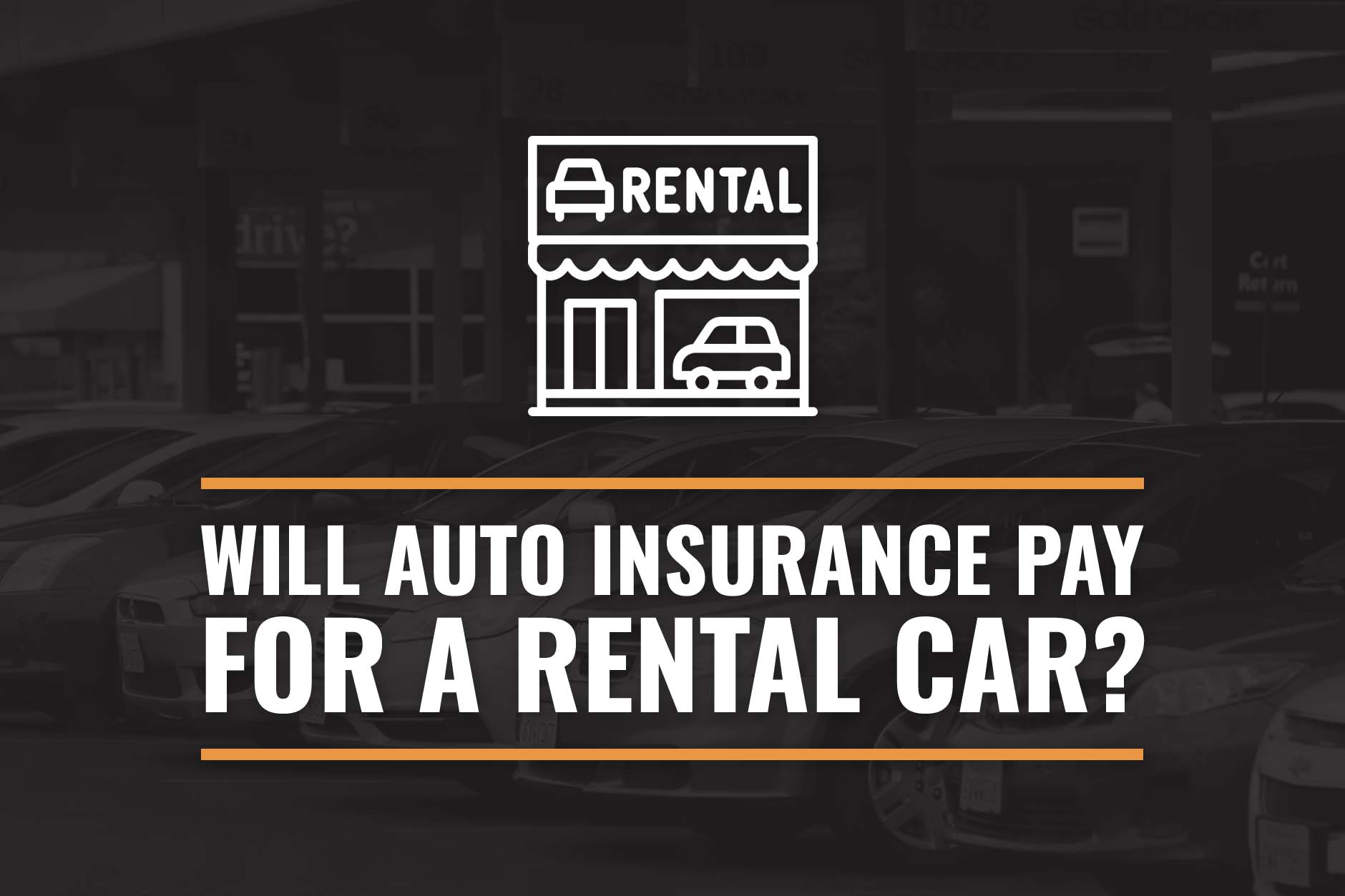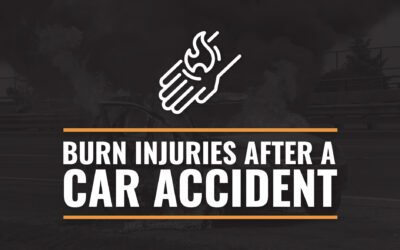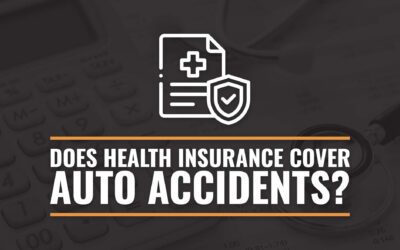
Table of Contents
If you’ve ever been in a car accident, you know how disruptive it can be to your daily life. Next to who will cover your medical bills and lost wages due to severe injuries, one of the biggest concerns after a collision is how you (or your family) will get around while your car is being repaired.
In Michigan, where many people rely on their cars to run errands and get to and from work or school, the question often arises: Will auto insurance pay for a rental car after an accident? The answer depends on several factors, including your insurance policy, the details of the accident, and Michigan’s no-fault insurance laws. In this blog, we’ll explore when and how your auto insurance might cover the cost of a rental car after an accident in Michigan.
Understanding Michigan’s No-Fault Insurance System
Michigan operates under a no-fault auto insurance system, which means that after an accident, each driver’s insurance company covers their medical expenses, lost wages, and certain other costs, regardless of who was at fault. However, this system can be confusing when it comes to rental car coverage. In Michigan, your auto insurance policy may cover the cost of a rental car, but it depends on the type of coverage you have and the circumstances of the accident.
What Type of Auto Insurance Do You Have?
There are several types of auto insurance coverage that could potentially pay for a rental car after an accident, and understanding them is key to knowing whether you’ll be reimbursed for rental car costs.
1. Rental Car Reimbursement Coverage
Rental car reimbursement coverage is an optional add-on to your auto insurance policy. If you have this coverage, your insurance company will pay for the cost of a rental car while your vehicle is being repaired after an accident. The specifics vary depending on your policy, but there are some common features:
- Daily Limits: Most policies have a daily limit on the amount they’ll pay for a rental car. For example, your policy might cover up to $30 per day for a rental car.
- Total Limits: In addition to daily limits, there may be a total limit on how much your insurer will pay. For example, your policy might cover up to $900 for a rental car over a 30-day period.
- Coverage Duration: Rental car reimbursement coverage typically only applies while your car is being repaired. Once your car is fixed or declared a total loss, the coverage usually ends.
It’s important to note that rental car reimbursement is not included in standard auto insurance policies in Michigan. You must purchase it as an add-on, so it’s worth checking your policy to see if you have this coverage.
2. Collision Coverage
Collision coverage pays for the cost of repairing or replacing your car if it’s damaged in an accident, regardless of who was at fault. While collision coverage itself doesn’t pay for a rental car, it can help you get back on the road faster by covering the repair costs. If you also have rental car reimbursement coverage, your insurance might cover the cost of a rental car while your car is being repaired under your collision coverage.
3. Personal Injury Protection (PIP)
Personal Injury Protection (PIP) covers medical expenses, lost wages, and certain other costs after an accident. However, PIP generally does not cover the cost of a rental car. Its primary focus is on medical expenses and wage loss, so if you’re relying on PIP alone, you’ll likely need to pay for a rental car out of pocket unless you have additional coverage.
4. Liability Coverage
Liability coverage is required in Michigan and pays for damages you cause to other people or their property in an accident. If another driver is at fault for the accident, their liability coverage might pay for your rental car, but this is not guaranteed. Michigan’s no-fault system often means that your own insurance is responsible for your expenses, regardless of who caused the accident.
What If the Other Driver Is At Fault?
In Michigan, even if the other driver is at fault, your own insurance policy typically covers your expenses due to the no-fault system. However, there are some exceptions.
Mini-Tort Claims
Michigan has a mini-tort law that allows you to recover up to $3,000 from the at-fault driver for vehicle damage not covered by your insurance. This can include costs like your deductible or other out-of-pocket expenses, but it generally doesn’t cover rental car costs.
Filing a Claim Against the Other Driver
In certain situations (such as if the at-fault driver was uninsured or underinsured), you might be able to file a claim against them to recover rental car costs. However, this can be a complicated process, and it’s not guaranteed that you’ll recoup these expenses. It’s often easier and faster to rely on your own insurance coverage if you have the appropriate add-ons.
If you’re facing a complicated situation, such as dealing with an at-fault driver who is uninsured or disputing coverage with your insurance company, consulting with a Michigan car accident lawyer can help. An attorney can explain your legal options and help you seek compensation not only for rental car expenses but also medical bills, lost wages, and other financial damages.
Steps to Take After an Accident to Get a Rental Car
If you’ve been in an accident and need a rental car, there are several steps you should take to ensure you’re covered:
- Contact Your Insurance Company Immediately: Contact your insurance company as soon as possible to report the incident and discuss your coverage options. Your insurer will help you determine whether your policy includes rental car reimbursement and guide you through the process of getting a rental car.
- Review Your Policy: Before renting a car, review your auto insurance policy to understand your coverage. Look for details about rental car reimbursement, including daily and total limits, and make sure you know what your policy covers.
- Choose a Rental Car Within Your Coverage Limits: If your policy includes rental car reimbursement, be mindful of the daily and total limits. Choose a rental car that fits within these limits to avoid paying out of pocket. If you need a larger or more expensive vehicle, you may have to cover the difference yourself.
- Keep All Receipts and Documentation: Your insurance company will likely require documentation to process your rental car reimbursement. Keep all receipts from the rental car company, and document any correspondence with your insurer. This will help ensure a smooth reimbursement process.
- Understand the Duration of Your Coverage: Rental car reimbursement typically only lasts for a certain period while your vehicle is being repaired. Make sure you understand when your coverage ends so you’re not caught off guard with unexpected rental car expenses.
- Consider Additional Insurance for the Rental Car: While your auto insurance policy may cover the cost of renting a car, it might not cover damage to the rental car itself. Consider purchasing additional insurance from the rental car company to protect yourself in case of damage. You can also check if your credit card offers rental car insurance, which might be a more affordable option.
What If You Don’t Have Rental Car Reimbursement Coverage?
If you don’t have rental car reimbursement coverage, you’ll likely need to pay for the rental car out of pocket. However, there are still a few options you can consider:
- Credit Card Rental Car Coverage: Some credit cards offer rental car insurance as a perk. This coverage typically applies when you pay for the rental with your card and can include damage protection and other benefits. However, it usually doesn’t cover the cost of renting the car itself, so you’ll still need to cover the rental fee.
- Out-of-Pocket Expenses: If you don’t have rental car reimbursement coverage, you may need to pay for the rental car out of pocket. To minimize costs, shop around for the best rental rates, consider renting a smaller or more economical vehicle, and look for discounts or promotions.
- Borrowing a Car: If renting a car is too expensive, consider borrowing a car from a friend or family member. While this might not be a long-term solution, it can help you get by while your car is being repaired.
- Public Transportation: In some areas of Michigan, public transportation can be a viable alternative to renting a car, especially if your injuries don’t impact your mobility. While it might not be as convenient, it can save you money while your vehicle is being repaired.
Why It’s Worth Adding Rental Car Reimbursement Coverage
While rental car reimbursement coverage is optional, it’s often a worthwhile addition to your auto insurance policy. Accidents are unpredictable, and the cost of renting a car out of pocket can add up quickly. Adding rental car reimbursement coverage to your policy provides peace of mind, knowing that you’ll have transportation if your vehicle is damaged in an accident.
Here are a few reasons why you might want to consider this coverage:
- Affordability: Rental car reimbursement coverage is typically inexpensive compared to other types of insurance. For a small increase in your premium, you can secure coverage that could save you hundreds of dollars in rental car fees after an accident.
- Convenience: Having rental car reimbursement coverage simplifies the process of getting a rental car after an accident. Instead of worrying about how to pay for a rental, you can focus on recovering from the accident and getting your vehicle repaired.
- Protection Against Unexpected Costs: Accidents often come with unexpected expenses, from medical bills to car repairs. Rental car reimbursement coverage helps mitigate some of these costs by covering the expense of a rental car, so you don’t have to dip into your savings or emergency fund.
- Flexibility: Rental car reimbursement coverage usually allows you to choose where you rent your car from, giving you the flexibility to select a rental company that meets your needs. Whether you need a compact car for short-term use or a larger vehicle to accommodate your family, this coverage gives you options without worrying about the cost.
Even if you rarely get into accidents, having rental car reimbursement coverage can be valuable over the long term. It ensures that you’re prepared for the unexpected and won’t be caught off guard by the need for a rental car.
How to Add Rental Car Reimbursement Coverage to Your Policy
If you don’t already have rental car reimbursement coverage, adding it to your auto insurance policy is straightforward.
- Review Your Current Policy: Start by reviewing your current auto insurance policy to see if you already have rental car reimbursement coverage. If you’re unsure, contact your insurance company or agent for clarification.
- Contact Your Insurance Company: If you don’t have the coverage and want to add it, reach out to your insurance company. They can provide you with information on how much it will cost to add rental car reimbursement to your policy and what coverage limits are available.
- Choose the Right Coverage: Consider how much coverage you might need. Most policies offer different levels of coverage, such as a daily limit of $30, $40, or $50 for rental car expenses. Choose a limit that makes sense for your needs and budget.
- Update Your Policy: Once you’ve decided on the coverage you want, your insurance company will update your policy to include rental car reimbursement. The change usually takes effect immediately, so you’ll be covered in the event of an accident.
Make sure you understand the terms and conditions of your rental car reimbursement coverage, including any limitations or exclusions. This will help you avoid surprises if you ever need to use the coverage.
Discuss Your Case With a Michigan Car Accident Lawyer Today
The days and weeks following a car accident can be stressful, especially when you’re struggling to get around while your vehicle is being repaired. By understanding your policy, securing rental car reimbursement coverage, and knowing your options, you can be better prepared for the unexpected.
If you’re unsure about your current coverage or need assistance with a claim, LegalGenius, PLLC is here to help. Our team has years of experience handling auto insurance claims and will fight for the compensation you need to cover your losses. Whether you need help understanding your policy, dealing with an insurance company, or exploring your legal options, we’re here to support you. To schedule your free consultation, fill out our Ask the Genius™ form or call (800) 209-4000 today.

Attorney Jeffrey Perlman
Attorney Jeffrey Perlamn is the managing partner at LegalGenius, PLLC. He has helped Metro Detroit accident victims recover the compensation they deserve for over 35 years. He believes everyone should have access to justice and the legal system, which is why Attorney Perlman spends his time outside of the courtroom writing informational blogs on the LegalGenius website that are accessible to all.


